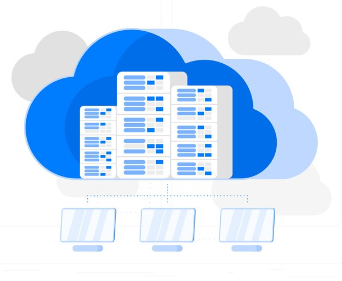VPS Cloud Server
In today’s digital landscape, the demand for scalable and secure hosting solutions has never been greater. One such solution gaining traction is the Virtual Private Server (VPS) Cloud Server. Let’s delve into what exactly a VPS Cloud Server entails and why it’s become indispensable in modern computing.
What is a VPS Cloud Server?
A VPS Cloud Server is a virtualized server environment hosted on a cloud infrastructure. It offers users a dedicated portion of resources within a larger physical server, providing a balance between affordability and performance.
Importance of VPS Cloud Servers in Modern Computing
VPS Cloud Servers play a crucial role in meeting the dynamic needs of businesses and individuals alike. They offer scalability, cost-effectiveness, and enhanced security, making them an ideal choice for various applications, from hosting websites to running complex applications.
Understanding VPS
Explaining Virtual Private Servers (VPS)
At its core, a VPS is a virtualized instance of a physical server, partitioned to function as an independent server environment. Each VPS operates with its own resources, including CPU, RAM, and storage, providing users with a level of isolation and control akin to that of a dedicated server.
How VPS Differs from Shared Hosting and Dedicated Servers
Unlike shared hosting, where resources are shared among multiple users, and dedicated servers, which are entirely devoted to a single user, VPS strikes a balance between the two. It offers the customization and control of a dedicated server at a fraction of the cost.
Benefits of Using VPS Cloud Servers
Scalability
One of the primary advantages of VPS Cloud Servers is their scalability. Users can easily upgrade or downgrade their resources as needed, ensuring optimal performance without overpaying for unused capacity.
Cost-effectiveness
With VPS, users pay only for the resources they consume, making it a cost-effective solution for businesses of all sizes. Additionally, the shared infrastructure of cloud hosting helps reduce operational expenses associated with hardware maintenance.
Enhanced Security
VPS Cloud Servers offer enhanced security compared to shared hosting environments. Since each VPS operates independently, the risk of security breaches is mitigated, and users have greater control over their server’s security measures.
Getting Started with VPS Cloud Servers
Choosing the Right VPS Provider
When selecting a VPS provider, several factors should be taken into account:
- Performance: Assess the provider’s infrastructure and ensure it can meet your performance requirements.
- Reliability: Look for a provider with a track record of uptime and reliability to minimize potential disruptions.
- Customer Support: Evaluate the level of customer support offered, including response times and expertise.
Setting Up Your VPS
Selecting an Operating System
Choose an operating system that aligns with your needs and preferences, whether it’s Linux distributions like Ubuntu or CentOS, or Windows Server for specific applications.
Configuring Resources and Specifications
Customize your VPS by allocating resources such as CPU cores, RAM, and storage based on your workload and performance expectations.
Managing Your VPS
Remote Desktop Connection
For Windows-based VPS, a remote desktop connection allows users to access their server’s desktop interface from anywhere with an internet connection.
SSH Access
Secure Shell (SSH) provides a secure method for accessing and managing Linux-based VPS through a command-line interface.
Installing Applications and Software
CMS Platforms
Popular content management systems like WordPress or Joomla can be easily installed on VPS to power websites and blogs.
Development Tools
Install development frameworks and tools such as Node.js, Python, or Git to support application development and deployment.
Monitoring and Maintenance
Resource Usage Tracking
Utilize monitoring tools to track resource usage and performance metrics, ensuring efficient resource allocation and identifying potential bottlenecks.
Security Updates and Patches
Regularly apply security updates and patches to your VPS to mitigate vulnerabilities and safeguard against potential threats.
Optimizing Performance
Performance Tuning Techniques
Fine-tune resource allocation to optimize performance, allocating more resources to critical applications and services as needed.
Cache Optimization
Implement caching mechanisms to reduce server load and improve response times, enhancing the overall performance of your VPS.
Load Balancing
Implementing Load Balancers
Distribute incoming traffic across multiple servers to prevent overload and ensure high availability and responsiveness.
Benefits for High-Traffic Websites
Load balancing is particularly beneficial for high-traffic websites, allowing them to handle spikes in traffic without sacrificing performance or reliability.
Security Measures for VPS Cloud Servers
Firewall Configuration
Configure firewall rules to control incoming and outgoing traffic, preventing unauthorized access and protecting against malicious attacks.
Encryption Protocols
Implement encryption protocols such as SSL/TLS to secure data in transit and protect sensitive information from interception.
Regular Backups and Disaster Recovery Plans
Importance of Backing Up Data
Regularly back up your data to prevent data loss in the event of hardware failure, data corruption, or cyberattacks.
Creating a Backup Strategy
Develop a comprehensive backup strategy that includes regular backups, offsite storage, and testing to ensure data integrity and availability.
Scaling Your VPS Infrastructure
Vertical Scaling
Vertical scaling involves adding more resources, such as CPU or RAM, to a single server to handle increased workload.
Horizontal Scaling
Horizontal scaling, on the other hand, involves adding more servers to distribute workload and improve performance, offering greater scalability and redundancy.
Adding Resources on Demand
RAM and CPU Upgrades
Easily scale your VPS infrastructure by upgrading RAM and CPU resources to accommodate growing demand and workload requirements.
Storage Expansion
Expand storage capacity as needed to accommodate data growth and ensure sufficient space for applications and files.
Advanced VPS Cloud Server Features
Introduction to Docker Containers
Docker containers provide a lightweight and portable solution for deploying applications in isolated environments, improving efficiency and scalability.
Deploying Applications with Docker
Leverage Docker’s containerization technology to streamline application deployment, simplify management, and enhance scalability.
High Availability and Failover
Implementing Redundancy
Deploy redundant systems and failover mechanisms to minimize downtime and ensure continuous availability of services.
Ensuring Continuity of Service
Implement disaster recovery plans and automated failover procedures to maintain service continuity in the event of hardware failures or network outages.
Conclusion
In conclusion, VPS Cloud Servers offer a versatile and scalable hosting solution for businesses and individuals alike. With benefits such as scalability, cost-effectiveness, and enhanced security, VPS technology has become integral to modern computing.
By harnessing the power of VPS Cloud Servers and implementing best practices for management, optimization, and security, users can unlock the full potential of their hosting infrastructure.






